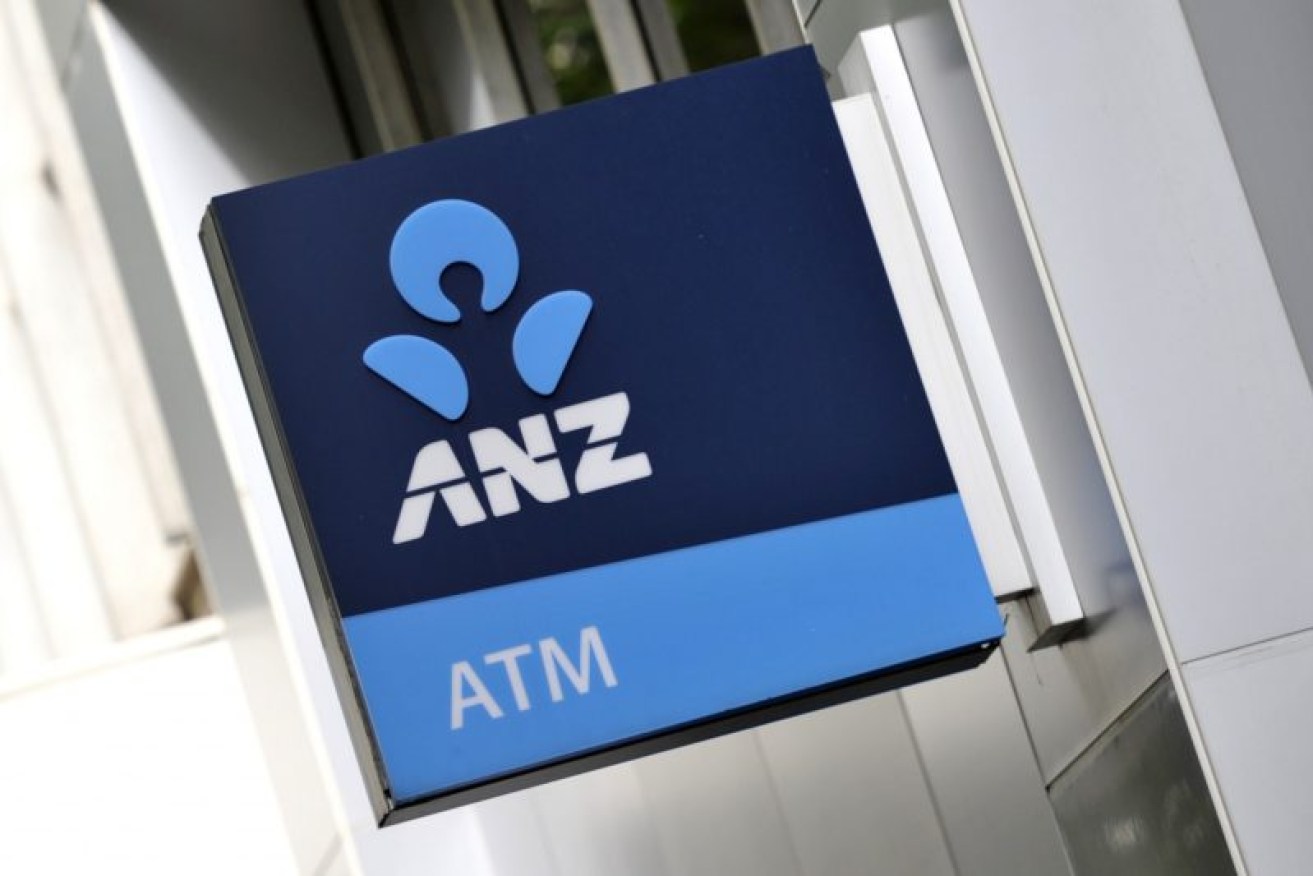ANZ, Citi and Deutsche Bank likely to be charged over share sales

ANZ has raised home loan rates. Photo: AAP
The Australian Competition and Consumer Commission says it expects charges to be laid against the ANZ Bank, its Group treasurer, investment banks Citigroup and Deutsche Bank as well as several individuals over an alleged criminal cartel arrangement.
The ACCC said the charges were expected to be laid by the Commonwealth Director of Public Prosecutions in relation to trading in ANZ shares following an ANZ institutional share placement in August 2015.
“It will be alleged that ANZ and the individuals were knowingly concerned in some or all of the conduct,” ACCC chairman Rod Sims said.
The allegations relate to the sale of $2.5 billion worth of shares to large institutional investors on August 6, 2015.
The proceeds of the so-called Institutional Equity Placement were intended to raise ANZ’s capital buffer to meet the Australian Prudential Regulatory Authority’s demand for an “unquestionably” strong banking sector.
The 80.8 million shares were offered to the institutional investors at a discounted rate of $30.95 per share.
Investment banks face charges
The deal was fully underwritten by three big global investment banks; Citigroup, Deutsche Bank and JP Morgan.
Citigroup and Deutsche Bank have also confirmed they have received notices from the Commonwealth Director of Public Prosecutions (CDPP) over thee matter and both said they would vigorously defend any charges.
JP Morgan declined to comment.
The three investment banks organised the sale of shares — which represented approximately 0.91 per cent of ANZ’s total shares on issue at that time — and took responsibility for any shares unsold.
“The proceedings relate to an arrangement or understanding allegedly made between the joint lead managers in relation to the supply of ANZ shares,” ANZ said in a statement to the ASX.
“We believe ANZ acted in accordance with the law in relation to the placement and on that basis the bank intends to defend both the company and our employee,” ANZ chief risk officer Kevin Corbally said.
Mr Corbally said the bank was also cooperating with an investigation by the Australian Securities and Investments Commission (ASIC) in relation to the placement.
The ASIC investigation centres on whether ANZ’s announcement of August 7, 2015 should have stated the joint lead managers took up approximately 25.5 million shares of the placement.
The shortfall in finding buyers left the underwriters with around $790 million worth of unsold shares.
An ANZ statement issued the day after the institutional share sale said the deal had been completed, but made no mention of stock retained by the underwriters and whether there were any plans to dispose of it.
Citigroup fights back
Citigroup said the allegations involved an area of market activity that has not been considered by any Australian court or addressed in any regulatory guidance notes previously published by the ACCC or ASIC.
“This is a highly technical area and if the ACCC believes there are matters to address, these should be clarified by law or regulation or consultation,” Citigroup said in a prepared statement.
“Underwriting syndicates exist to provide the capacity to assume risk and to underwrite large capital raisings, and have operated successfully in Australia in this manner for decades.
It said in the transaction in question, ANZ raised important equity capital through the underwriting arrangement with the syndicate of banks, including Citi.
“Citi and its employees acted with integrity and without any bad intent in fulfilling the obligations of this underwriting agreement,” the statement said.
“As required by the Market Integrity Rules, Citi also effectively participated in orderly capital markets to ensure that the required outcomes for ANZ and its shareholders were achieved.
“The allegation put by the ACCC, through the CDPP, is that the joint underwriters reached an understanding with respect to the disposal of less than 1 per cent of ANZ’s outstanding ordinary shares.
“Any such allegation should be considered in the context that ANZ’s shares are bought and sold freely by thousands of shareholders in volumes representing hundreds of millions of dollars every business day, including for the period in question.”
Big fines and jail time
Under the Competition and Consumer Act, individuals found guilty face up to 10 years in jail and/or fines of up to $420,000 per criminal cartel offence.
Institutions face fines of up to $10 million per offence.
Both ANZ and the ACCC said they would not make any further comment until charges were laid.
ANZ shares were hit hard by the news, falling 1.9 per cent to $26.70.








